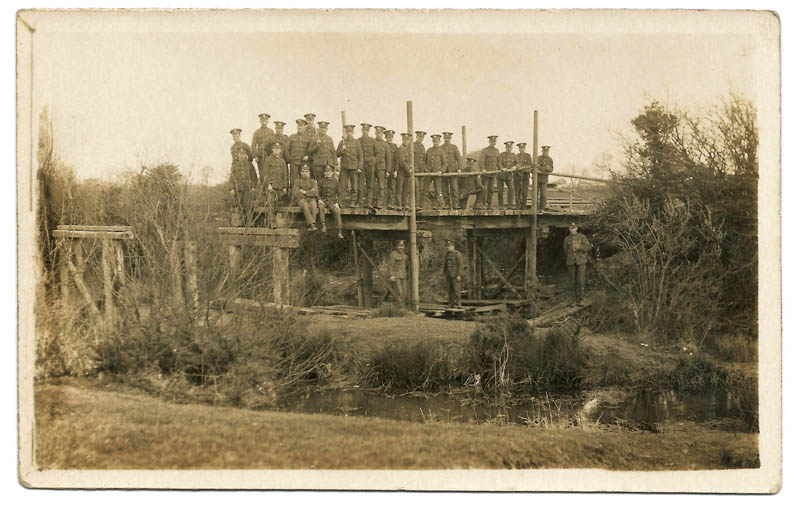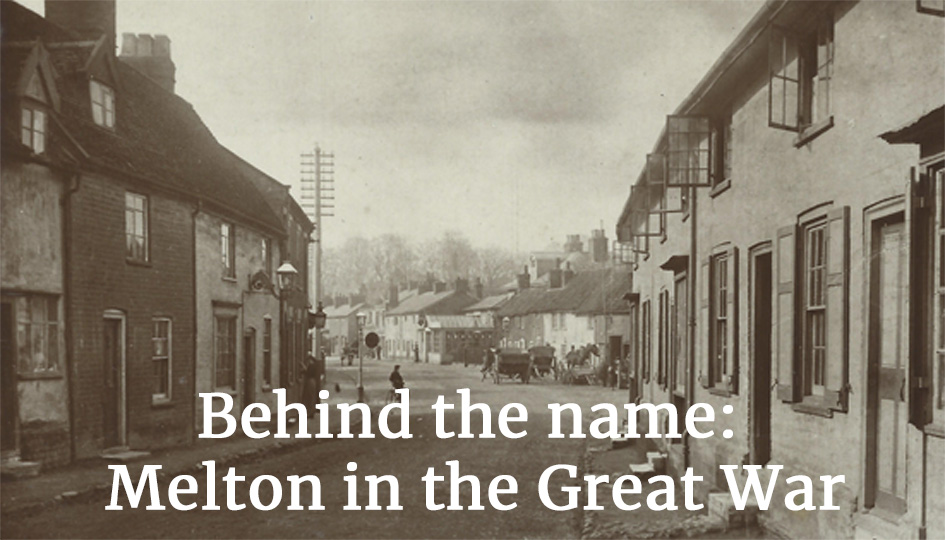Walter Nutt was a member of the Royal Engineers whose tasks included bridge building to enable troops to move to and from the front line. 
This photograph was probably taken during a training exercise.
Walter was the only son of Arthur and Constance, born in India on 4th September 1897. He was educated at Roydon Hall, near Diss, in Norfolk and later, at Cheltenham College.
In 1915, at the age of eighteen, Walter was commissioned into the Royal Engineers as a Second Lieutenant. On 8th May 1916, he was posted to France where he joined the 26th Field Company, Royal Engineers based at Les Brebis near Loos. Throughout the rest of the year, Walter and his company were involved in the construction of dugouts, repair of roads, digging of saps (narrow trenches) and, in spring 1917, the building of a dam. On 1st July 1917, Walter’s promotion to full Lieutenant was reported in the London Gazette.
In September 1918, the 26th Field Company was based near Vermand in support of the 1st Division during an attack on the German line between Fresnoy-le-Petit and Gricourt. During the fighting, Walter was in command of a section of men who consolidated a position on the far side of the village. For his actions, Walter was awarded the Military Cross. The medal citation read:
“At Fresnoy-le-Petit, 24th/25th September 1918, this officer showed great gallantry in consolidating a post by night on the far side of the village. Passing, with his section, through very severe shelling he completed a satisfactory defence before dawn, in spite of the fact that some of the enemy were still holding out in the village.”
Walter remained in the Royal Engineers after the war ended, achieving the rank of Major by the start of the Second World War. By 1949, Walter had attained the rank of Brigadier and had been “Mentioned in Dispatches” on two occasions, wounded, and awarded the C.B.E.
Walter married Ruth Hunting in 1922 in Hampstead, London. They had three sons; Richard, born in 1924 and twins, Michael and Timothy, in 1928. Walter died in Lymington, Hampshire, on 17th August 1974.
For his service in the First World War, Walter received the Military Cross and the British War and Victory Medals.
